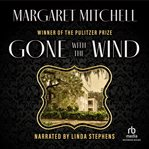Review by New York Times Review
MANY AMERICANS MIGHT not know the more polemical side of race writing in our history. The canon of African-American literature is well established. Zora Neale Hurston, Richard Wright, James Baldwin are familiar figures. Far less so is Samuel Morton (champion of the obsolete theory of polygenesis) or Thomas Dixon (author of novels romanticizing Klan violence). It is tempting to think that the influence of those dusty polemics ebbed as the dust accumulated. But their legacy persists, freshly shaping much of our racial discourse. On the occasion of Black History Month, I've selected the most influential books on race and the black experience published in the United States for each decade of the nation's existence - a history of race through ideas, arranged chronologically on the shelf. (In many cases, I've added a complementary work, noted with an asterisk.) Each of these books was either published first in the United States or widely read by Americans. They inspired - and sometimes ended - the fiercest debates of their times: debates over slavery, segregation, mass incarceration. They offered racist explanations for inequities, and antiracist correctives. Some - the poems of Phillis Wheatley, the memoir of Frederick Douglass - stand literature's test of time. Others have been roundly debunked by science, by data, by human experience. No list can ever be comprehensive, and "most influential" by no means signifies "best." But I would argue that together, these works tell the history of anti-black racism in the United States as painfully, as eloquently, as disturbingly as words can. In many ways, they also tell its present. 1771-1780 POEMS ON VARIOUS SUBJECTS, RELIGIOUS AND MORAL, by Phillis Wheatley (1773) No book during the Revolutionary era stirred more debates over slavery than this first-ever book by an African-American woman. Assimilationists and abolitionists exhibited Wheatley and her poetry as proof that an "uncultivated barbarian from Africa" could be civilized, that enslaved Africans "may be refin'd, and join th' angelic train" of European civilization and human freedom. Phillis Wheatley Enslavers disagreed, and lashed out at Wheatley's "Poems." * "An Address to the Inhabitants of British Settlements, on the Slavery of the Negroes in America," by Benjamin Rush (1773) 1781-1790 NOTES ON THE STATE OF VIRGINIA, by Thomas Jefferson (1785) The author of American freedom in 1776 wrote of American slavery as a necessary evil in this book, widely regarded as the most important political portrait of the nascent United States. Jefferson indicted the "tyranny" Ibram x. kendi, a professor of history at the University of Florida, won the National Book Award for "Stamped From the Beginning: The Definitive History of Racist Ideas in America." of slavery while also supplying fellow slaveholders with a batch of prejudices to justify slavery's rapid expansion. Blacks "are inferior to the whites in the endowments both of body and mind," he wrote. And Wheatley is not "a poet." *"The Interesting Narrative of the Life of Olaudah Equiano; Or, Gustavus Vassa, the African" (1789) 1791-1800 PENNSYLVANIA, DELAWARE, MARYLAND, AND VIRGINIA ALMANAC AND EPHEMERS, by Benjamin Banneker (1792-97) After helping to survey the District of Columbia, Banneker compiled his first almanac, replacing Wheatley's "Poems" as abolitionists' finest showpiece of black capability. He enclosed the almanac in a letter to Jefferson, writing, "I apprehend you will embrace every opportunity, to eradicate that train of absurd and false ideas and opinions." Jefferson did not jump off the train, but other Americans did while reading this remarkable book. Thomas Jefferson 1801-1810 AN ESSAY ON THE CAUSES OF VARIETY OF COMPLEXION AND FIGURE IN THE HUMAN SPECIES, by Samuel Stanhope Smith (second edition, 1810) The Princeton president tried to stop the polygenesis theory that the races are created unequal, stoutly defending biblical monogenesis and the notion that first humans were white. He called for physical assimilation: In a colder climate blackened skins would revert to their original white beauty; "the woolly substance" on black heads would become "fine, straight hair" again. His racist idea of the lighter and straighter the better still demeans after all these years. 1811-1820 THOUGHTS ON THE COLONIZATION OF FREE BLACKS, by Robert Finley (1816) Blacks should be freed, trained "for self-government" and returned to Africa, according to the antislavery clergyman and former student of Samuel Stanhope Smith. Finley wrote the manifesto for colonization, a cause supported by several American leaders until Lincoln's failed schemes doomed the movement during the Civil War. *"An Appeal From the Judgments of Great Britain Respecting the United States of America," by Robert Walsh (1819) 1821-1830 AN APPEAL TO THE COLORED CITIZENS OF THE WORLD, by David Walker (1829) This Boston abolitionist viciously assailed colonization and "Mr. Jefferson's arguments" in the first booklength attack on the "inhuman system of slavery" by an African-American. Black seamen smuggled the appeal into chained Southern hands; community readers sounded the appeal to violently throw off the violent yoke. Walker's ultimatum for slaveholders: Give us freedom and rights, or you will "curse the day that you ever were born! " 1831-1840 CRANIA AMERICANA, by Samuel Morton (1839) This book revived the theory of polygenesis that dominated intellectual racial discourse until the Civil War. What reviewers hailed as an "immense body of facts" were Morton's measurements of the "mean internal capacity" of the human skulls in his renowned collection in Philadelphia, from which he concluded that whites had the "highest intellectual endowments." * "Review of the Debate in the Virginia Legislature of 1831 and 1832," by Thomas Roderick Dew (1832), and "Thoughts on African Colonization," by William Lloyd Garrison (1832) 1841-1850 THE NARRATIVE OF THE LIFE OF FREDERICK DOUGLASS (1845) The gripping best seller earned Douglass international prestige and forced readers around the world to come to terms with slavery's brutality and blacks' freedom dreams. No other piece of antislavery literature so devastated Morton's defense of polygenesis, or John C. Calhoun's recently popularized theory that slavery was a "positive good." *"The Narrative of Sojourner Truth" (1850) 1851-1860 UNCLE TOM'S CABIN, by Harriet Beecher Stowe (1852) Inflamed by the Fugitive Slave Act of 1850, Stowe offered a fugitive slave story that made millions sympathize with slaves. Her novel - and its dramatic adaptations - turned the "hard and dominant Anglo-Saxon race" toward Christian salvation with a simple lesson: to stop enslaving quintessential Christians in all their "lowly docility of heart." From accommodating Uncle Toms to superior mulattoes to soulful Africans, the book also popularized any number of lasting racist tropes. *"On the Origin of Species," by Charles Darwin (1859) 1861-1870 THE PRINCIPLES OF BIOLOGY, by Herbert Spencer (1864) In "Principles," Spencer coined the term "survival of the fittest," becoming the ultimate amplifier of Social Darwinism in the United States. Americans fell in love with his comprehensive theory of evolution, claiming that Reconstruction policies would allow inferior blacks to evolve (or assimilate) into white civilization or lose the struggle for existence. The net effect of Spencer's Social Darwinism: the eugenics movement of the early 20th century. * "Hereditary Genius," by Sir Francis Gabon (1869) 1871-1880 THE PROSTRATE STATE: South Carolina Under Negro Government, by James Pike (1874) This prominent New York journalist blanketed the nation with fairy tales of corrupt, incompetent, lazy Black Republican politicians. Reconstruction's enfranchising policies were a "tragedy," Pike wrote, nothing but "the slave rioting in the halls of his master." His "objective" reporting caused many once sympathetic Northerners to demand a national reunion based on white rule. *"The Descent of Man," by Charles Darwin (1871) 1881-1890 OUR BROTHER IN BLACK: His Freedom and His Future, by Atticus Haygood (1881) In the 1880s, Southern segregationists marketed their region as the New South, among them this Methodist bishop and Emory College president. In his popular book, Haygood eased consciences that the end of Reconstruction meant the end of black rights. The New South will be as good for black folk as the old, Haygood declared, as new white Southerners would continue to civilize inferior black folk in their nicely segregated free-labor society. *"The Plantation Negro as a Freeman," by Philip Alexander Bruce (1889) 1891-1900 RACE TRAITS AND TENDENCIES OF THE AMERICAN NEGRO, by Frederick Hoffman (1896) Better covered than the Plessy v. Ferguson decision that year, "Race Traits" catapulted this statistician into scientific celebrity. At the time of emancipation, blacks were "healthy in body and cheerful in mind," Hoffman wrote. Thirty years later, the 1890 census forecasts their "gradual extinction," due to natural immoralities and a propensity for diseases. He blazed the trail of racist ideas in American criminology when he concluded that higher black arrest rates indicated blacks committed more crimes. * "Southern Horrors: Lynch Law in All Its Phases," by Ida B. Wells (1892) 1901-1910 THE CLANSMAN: An Historical Romance of the Ku Klux Klan, by Thomas Dixon (1905) Convinced that "Uncle Tom's Cabin" had misrepresented the South, Dixon emerged as Jim Crow's novelist laureate. "The Clansman" was the most influential of his works, particularly after it was adapted into a popular play and D. W. Griffith's 1915 film "The Birth of a Nation." In Dixon's telling, the virtuous Ku Klux Klan saved Southern whites from their "awful suffering" during Reconstruction. * "The Souls of Black Folk," by W. E. B. Du Bois (1903) 1911-1920 TARZAN OF THE APES, by Edgar Rice Burroughs (1912) With his racist colonial plot, Burroughs glued animals, savages and Africa together in the American mind, and redeemed white masculinity after the first black heavyweight champion knocked it out in 1908. Forget boxing and Jack Johnson - white men embraced Tarzan, the inspiration for comic strips, 25 sequels and dozens of motion pictures. *"The Passing of the Great Race," by Madison Grant (1916) 1921-1930 NIGGER HEAVEN, by Carl Van Vechten (1926) Van Vechten was the Harlem Renaissance's ubiquitous white patron, a man as curiously passionate about showing off black people as zookeepers are about showing off their rare species. Through this best-selling novel, he gave white Americans a racist tour of the safari of Harlem, casting assimilated blacks in the guise of tropical exotic lands being spoiled by white developers. *"The Weary Blues," by Langston Hughes (1926) 1931-1940 GONE WITH THE WIND, by Margaret Mitchell (1936) The Pulitzer Prize-winning jewel of the plantation fiction genre, this was Americans' second all-time favorite book behind the Bible, according to a 2014 f Harris Poll. Mitchell portrays white enslavers as noble, slaves as shiftless, docile and loyal. Mitchell did for slavery what Dixon did for Reconstruction and Burroughs for Africa. * "Their Eyes Were Watching God," Zora Neale Hurston (1937) and "Native Son," by Richard Wright (1940) 1941-1950 AN AMERICAN DILEMMA: The Negro Problem and Modern Democracy, by Gunnar Myrdal (1944) As Americans fought against Nazism overseas, this Swedish economist served up an encyclopedic revelation of racial discrimination in their backyards. If there was a scholarly trigger for the civil rights movement, this was it. Myrdal concluded that "a great majority" of whites would "give the Negro a substantially better deal if they knew the facts." Segregationists seethed, and racial reformers were galvanized to show the truth of Jim Crow. *"Race: Science and Politics," by Ruth Benedict (revised edition, 1943) 1951-1960 TO KILL A MOCKINGBIRD, by Harper Lee (1960) This instant classic about a white lawyer defending a black man wrongly accused of rape was the "Uncle Tom's Cabin" of the civil rights movement. "Mockingbirds don't do one thing but make music for us to enjoy," a neighbor tells the lawyer's daughter, Scout. She's talking about their reclusive white neighbor, Boo Radley, but the African-Americans of 1930s Alabama come across as singing spectators, thankful for the moral heroism of Atticus Finch. The white savior remains the most popular racist character in American letters. * "Invisible Man," by Ralph Ellison (1952) 1961-1970 THE AUTOBIOGRAPHY OF MALCOLM X, as told to Alex Haley (1965) It was the manifesto for the Black Power movement, where young black saviors arose, alienated by white saviors and the slow pace of civil rights change. Malcolm wrote black pride before James Brown sang it. His ideological transformation from assimilationist to anti-white separatist to antiracist inspired millions of all races. * "I Know Why the Caged Bird Sings," by Maya Angelou (1969) 1971-1980 ROOTS: The Saga of an American Family, by Alex Haley (1976) For African-Americans in the radiance of Black Power's turn to Pan-Africanism, the thrilling and terrifying story of Kunta Kinte and his descendants arrived right on time. The best seller inspired one of the most watched shows in American television history. "Roots" dispatched legions of racist ideas of backward Africa, of civilizing slavery, of the contented slave, of loose enslaved women. The plantation genre of happy mammies and Sambos was gone with the wind. * "The Declining Significance of Race," by William Julius Wilson (1978) 1981-1990 THE COLOR PURPLE, by Alice Walker (1982) Of the black feminist classics of the period, Walker's garnered the most prestige - a National Book Award and Pulitzer Prize - and controversy. Set in 1930s rural Georgia, the story shows a black woman finding happiness beyond abusive black patriarchs, Southern poverty and racist whites. Steven Spielberg's 1985 blockbuster adaptation cemented its legacy. * "Beloved," by Toni Morrison (1987) 1991-2000 THE BELL CURVE: Intelligence and Class Structure in American Life, by Richard Herrnstein and Charles Murray (1994) Herrnstein and Murray offered validation for Americans raging about pathological blacks and crime, welfare and affirmative action. "Inequality of endowments, including intelligence, is a reality," they wrote, sparking one of the most intense academic wars in history over whether genes or environment had caused the racial "achievement gap" in standardized test scores. * "America in Black and White," by Stephan Thernstrom and Abigail Thernstrom (1997) 2001-2010 THE NEW JIM CROW: Mass Incarceration in the Age of Colorblindness, by Michelle Alexander (2010) Two years after Obama's election, Alexander put the entire criminal justice system on trial, exposing racial discrimination from lawmaking to policing to the denial of voting rights to exprisoners. This best seller struck the spark that would eventually Michelle Alexander light the fire of Black Lives Matter. * "Dreams From My Father," by Barack Obama (2004 reprint) ?
Copyright (c) The New York Times Company [January 1, 2017]
Review by Library Journal Review
There is a reason for the enduring popularity of this saga: it is a ripping good story, fast moving, replete with battles, romance, intrigue, murder, suspense, and a surprisingly strong feminist theme. For all that, Scarlett is such a simpering "Southern belle," but when the chips are down, she takes charge and gets things done no matter the cost. The theme, after all, is surviving change and overcoming obstacles, and the women do that far better than the men (remember poor Ashley?). The audiobook, of course, is far richer than the movie could be; richer characterizations, deeper scene setting and examination of the role of women in the sociology of the South, heart-wrenching descriptions of the carnage of war, and a generally carefully researched history of the period, with many events and even characters that do not appear in the film. To modern ears the language is shocking: pickaninnies, black bucks, darkies (and worse), but this sort of nonchalant racism serves to create the flavor of the times and a better understanding of the pre- and postwar South. Narrator Linda Stephens gets about a B minus; her Scarlett is near perfect, and her other white female Southerners are good, but the white males sound a bit too female, the Northerners sound Southern, and her black characters are just dreadful. There are lots of familiar lines (yes, Rhett really does say he doesn't give a damn) and scenes, and one is struck by how closely the film actors match the authors' descriptions of their characters (or maybe 60-odd years of "knowing" what they look like interferes). All in all, listeners intrepid enough to take this on will not be disappointed. Harriet Edwards, East Meadow P.L., NY (c) Copyright 2010. Library Journals LLC, a wholly owned subsidiary of Media Source, Inc. No redistribution permitted.
(c) Copyright Library Journals LLC, a wholly owned subsidiary of Media Source, Inc. No redistribution permitted.



